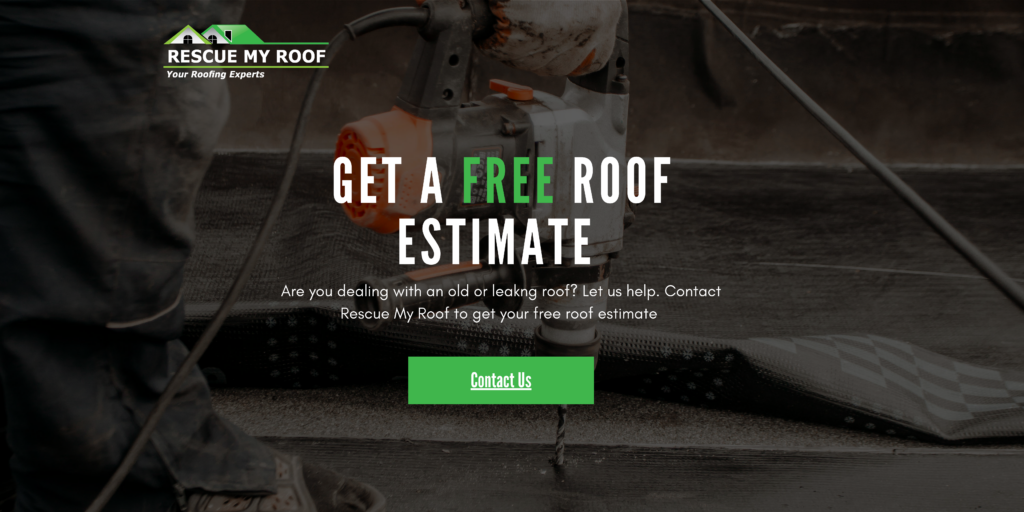Can You Void A Roof Warranty? (6 Things to Avoid)
A homeowner’s life is never easy, and the last thing you want to do is live in fear of voiding your roof’s warranties.
A roof replacement is a significant investment, and many homeowners protect their investments by adding on a roof warranty. Whether it be a workmanship or a manufacturer’s warranty, you can rest easy knowing your home is protected.
But warranties aren’t just cut and dry; there are steps to follow if you want warranties to cover your roof for a lifetime.
If you don’t have any experience with warranties- whether it be on a roof or other home appliances- don’t worry. Many of the clients Rescue My Roof works with have no idea either, and that’s why we walk them through the process.
We understand that a lot of the jargon and technicalities of a roof replacement, like warranties, can be a lot to wrap your mind around. Especially when it comes to ensuring your roof cleaning practices or repairs don’t void your existing warranties.
We’ll break down the actions to avoid so that you end this article with a clearer vision of how to maintain your roof without fear of voiding your warranties.
What Are Roofing Warranties?
Roofing warranties are deals provided by either the manufacturer, contractor, or both, to ensure that repairs on your roof and the material costs are covered if something goes wrong.
There are different types of warranties, like 50-year or pro-rated warranties, but the most important thing to know is the difference between a manufacturer’s and a workmanship warranty.
Manufacturer’s Warranty
A Manufacturer’s warranty is related to the roofing materials, and will cover things like shingles and underlayment.
If the products fail within the time restrictions of the warranty, the manufacturer will be responsible for the cost of buying new materials.
However, a manufacturer’s warranty will be voided if the repairs are needed due to poor workmanship. All products must be installed correctly to use this warranty later on.
If they are not, it will either be up to the workmanship warranty to cover the cost of repairs or the homeowner.
Workmanship Warranty
A workmanship warranty is a warranty provided directly by the roofing contractor. If anything were installed incorrectly during the roof replacement process, the warranty would cover the labor costs to fix it.
This warranty is only as good as the paper it’s written on. If a roofing contractor goes out of business, you will no longer be able to cash in on the workmanship warranty.
Voided workmanship warranties are why it’s crucial that you find a reliable contractor that has been in business for five years or longer. This helps ensure that they will be around when you need them most.
How Can You Void A Roofing Warranty?
A great warranty can be a selling point when buying a new roof. However, roofing warranties can be voided.
Here are six things you should avoid to keep your roof’s warranty intact:
1. Improper Installation

Finding the right contractor is essential for your peace of mind, your roof’s integrity, and the manufacturer’s warranty.
The manufacturer’s warranty covers things that the manufacturer can control – for example, the quality of the roofing materials.
However, if those materials are improperly installed, the manufacturer’s warranty will no longer apply to your roof.
That’s why it’s essential to find a contractor you can trust. Here is a list of nine questions you should ask before choosing a contractor.
2. Poor Roof Ventilation

Your roof isn’t just the shingles; there’s a whole system behind it, including decking, insulation, and ventilation.
Ventilation helps control the temperature of your roof and home. Too little ventilation, and you may have problems with water damage, mold, and roof damage.
If you experience issues with your roof, but the problem stems from poor ventilation, it voids your roof warranty.
Experienced roof contractors will inspect your ventilation during the initial estimate appointment. They should catch the issues before they happen and update ventilation at the time of the roof installation.
3. Layering Roof Shingles
A roof layover is when a contractor lays a new layer of shingles over the existing ones, minimizing costs and making your roof look brand new.
While layovers are an inexpensive way to update your home, they will void your manufacturer’s warranty.
The new layer of shingles will be unable to lay properly flat, increasing the risk of early failure and frequent replacement.
If you want the protection of a manufacturer warranty, avoid roof layovers.
4. Pressure Washing

Routine maintenance is highly recommended to maximize your roof’s longevity. While washing your roof may be necessary to avoid algae stains, pressure washing is not recommended.
Shingles are made of granules, and pressure washers use enough force to wash them away. This leaves your roof at risk for leaks.
Any roofing warranty does not cover damage to a roof caused by a homeowner’s mistake. Follow the manufacturer’s instructions for washing your roof.
5. Installing New Roof Hardware
Roofing companies and manufacturers cover their work only. If you install new hardware like a satellite dish or antenna, it will void the roofing warranty.
However, there is still hope if your roof leaks in another area. As long as the rest of the roof is intact, the workmanship or manufacturer’s warranty will cover damage done to the original roof.
6. Using Different Brands
Your roof is made of different layers. Manufacturers engineer shingles, ice/water barriers, and underlayment that work best together.
You must use a minimum number of components you must use from a manufacturer to qualify for their best warranties. Not using their products may mean forfeiting the manufacturer’s warranty.
The manufacturer determines the number of components you must use, so it’s best to check their policies before purchasing a new roof.
What Happens If You Void Your Roof Warranties
Roof warranties can be voided by using different brands, installing satellite dishes, and poor ventilation. But what happens after it’s voided?
When a warranty no longer applies to your roof, you are responsible for the cost of future materials and repairs.
It’s best to avoid the six items listed above to get the ultimate protection for your roof. If anything goes wrong, you may be able to cash in on the workmanship or manufacturer’s warranty to minimize costs.
You can read more about warranties and roof replacements with “The Benefits of a 50-Year Warranty” and “How to Choose the Best Roofing Warranty for You.”
Are you looking for a certified roofing contractor in Southeastern Wisconsin? Trust the experts at Rescue My Roof for your roof repairs or replacement. Contact us today to get a free estimate.


